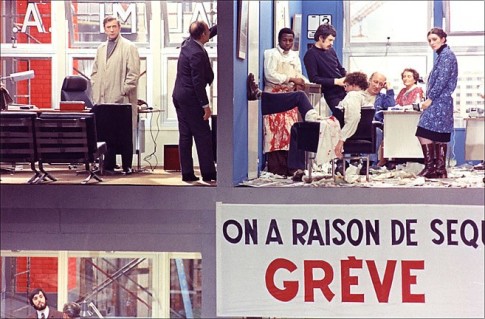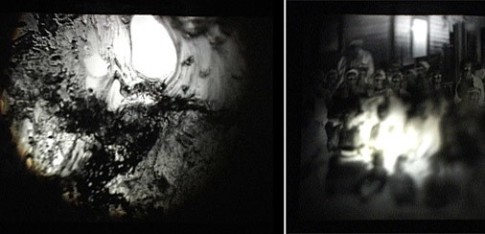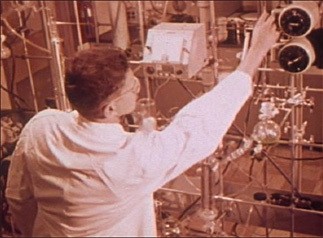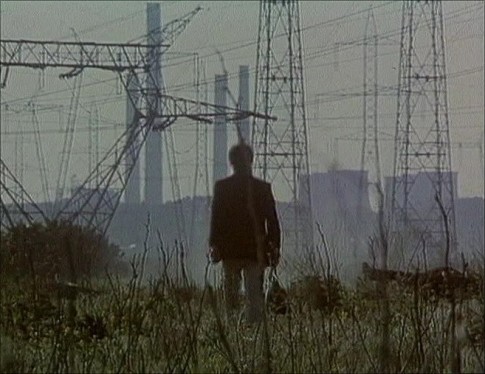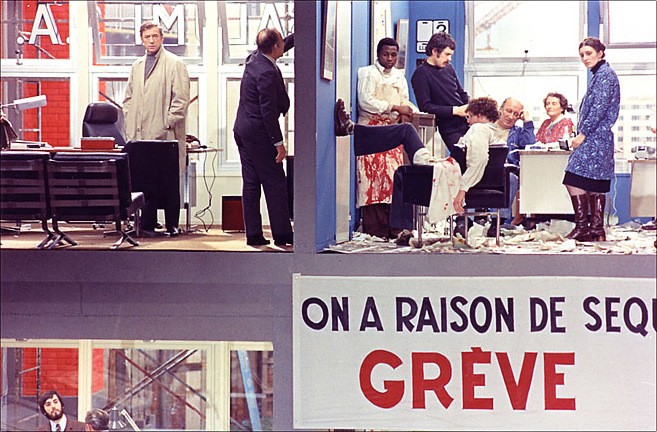
Jean-Luc Godard, Tout va bien, 1972
Saturday 13 November at 2 pm
In the Cinema
Admission free
Jean-Luc Godard: Tout va bien (1972)
Dir. Jean-Luc Godard, Jean-Pierre Gorin
95 min/35mm/colour /Swedish subtitles
Introduktion av Trond Lundemo
Jean-Luc Godard is arguably the major director who was most profoundly influenced by the events of May 1968. He could even be said to anticipate these events, especially in La chinoise (1967), but also in Weekend (1967) and Le gai savoir (1968).
After these fiction features, Godard participates in a number of ciné-tracts on the strikes of May and on workers’ own productions of films. After these collective productions, Godard continues to make a number of essay films together with Jean-Henri Roger, and soon after, with Jean-Pierre Gorin under the name of Groupe Dziga Vertov. This anti-auteurist stance is however highly complex in the case of Jean-Luc Godard, as these films were to a large extent received as ‘Godard films’. Tout va bien (1972) stands out among these films, as it is the only fiction feature produced by the Vertov group. This doesn’t make it less interesting, however, as it makes use of major stars of the commercial cinema (Jane Fonda and Yves Montand) to reflect on the role of the cinema industry in the face of the workers’ strikes and manifestations of 1968. It is a thoroughly marxist film, opening with the signing of the checks to pay the two stars. While the preceding films of the Vertov group are engaged with alternative ways of film production – i. e. not only to make political films but “to make films politically” – the following productions by Godard make use of the early video technology to engage with a re-invention of cinema and television.
This makes Tout va bien the only work by Godard to exploit the ‘traditional cinema format’ between Le gai savoir and Sauve qui peut (la vie) (1979), even if none of these films are ‘traditional’ by any of today’s standards. One major concern of these films is the dissociation between the sound and the image, in order to recombine them in new ways. This analytical practice remains a major feature of Godard’s films and videos today, still concerned with the work of the sound and the image.
Trond Lundemo

